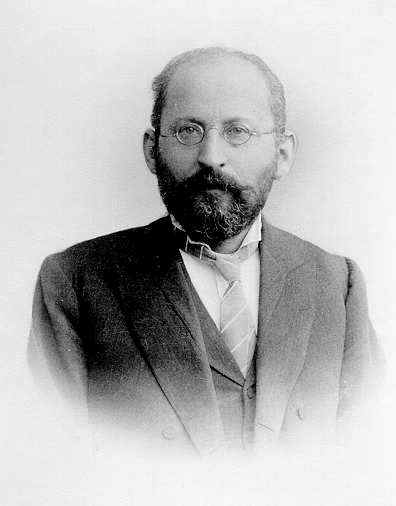Eduard Bernstein
 Eduard Bernstein (; 6 January 1850 – 18 December 1932) was a German social democratic politician and socialist theorist. A member of the Social Democratic Party (SPD), Bernstein is best known for his reformist challenge to Marxism known as evolutionary socialism or revisionism, in which he questioned the revolutionary predictions of Karl Marx and advocated for a gradual, parliamentary path to socialism. His political and theoretical work played a significant role in the development of modern social democracy and reformist socialism.
Eduard Bernstein (; 6 January 1850 – 18 December 1932) was a German social democratic politician and socialist theorist. A member of the Social Democratic Party (SPD), Bernstein is best known for his reformist challenge to Marxism known as evolutionary socialism or revisionism, in which he questioned the revolutionary predictions of Karl Marx and advocated for a gradual, parliamentary path to socialism. His political and theoretical work played a significant role in the development of modern social democracy and reformist socialism.Born into a lower-middle-class Jewish family in Berlin, Bernstein became active in socialist politics in his early twenties. He spent years in exile in Switzerland and London during the period of the Anti-Socialist Laws in Germany, where he became a close associate of Friedrich Engels. During his time in London, his interactions with the reformist Fabian Society and his observation of the stability of late Victorian capitalism led him to question key tenets of orthodox Marxism.
After Engels's death in 1895, Bernstein began to publicly articulate his revisionist views. In his most influential work, ''The Preconditions of Socialism'' (1899, also known as ''Evolutionary Socialism''), he rejected the Hegelian dialectical method and disputed the Marxist predictions of the inevitable collapse of capitalism, the disappearance of the middle class, and the increasing immiseration of the proletariat. Instead, he argued that socialists should work for gradual social and political reforms through democratic institutions. His famous aphorism, "The movement means everything to me and what is usually called 'the final aim of Socialism' is nothing," encapsulated his focus on practical, democratic progress over revolutionary goals.
Although his views were officially condemned by the SPD, which maintained its orthodox Marxist Erfurt Program, the party's practical policies were largely reformist, reflecting the reality Bernstein described. His work sparked major debates within the international socialist movement, pitting him and his supporters against orthodox Marxists like Karl Kautsky and radicals like Rosa Luxemburg. During World War I, Bernstein's principles led him to break with the SPD's pro-war majority and co-found the anti-war Independent Social Democratic Party (USPD), though he rejoined the SPD after the war. He served in the Reichstag during the Weimar Republic, where he continued to advocate for democracy and peace. He died in Berlin in late 1932, weeks before the Nazi seizure of power. Provided by Wikipedia
